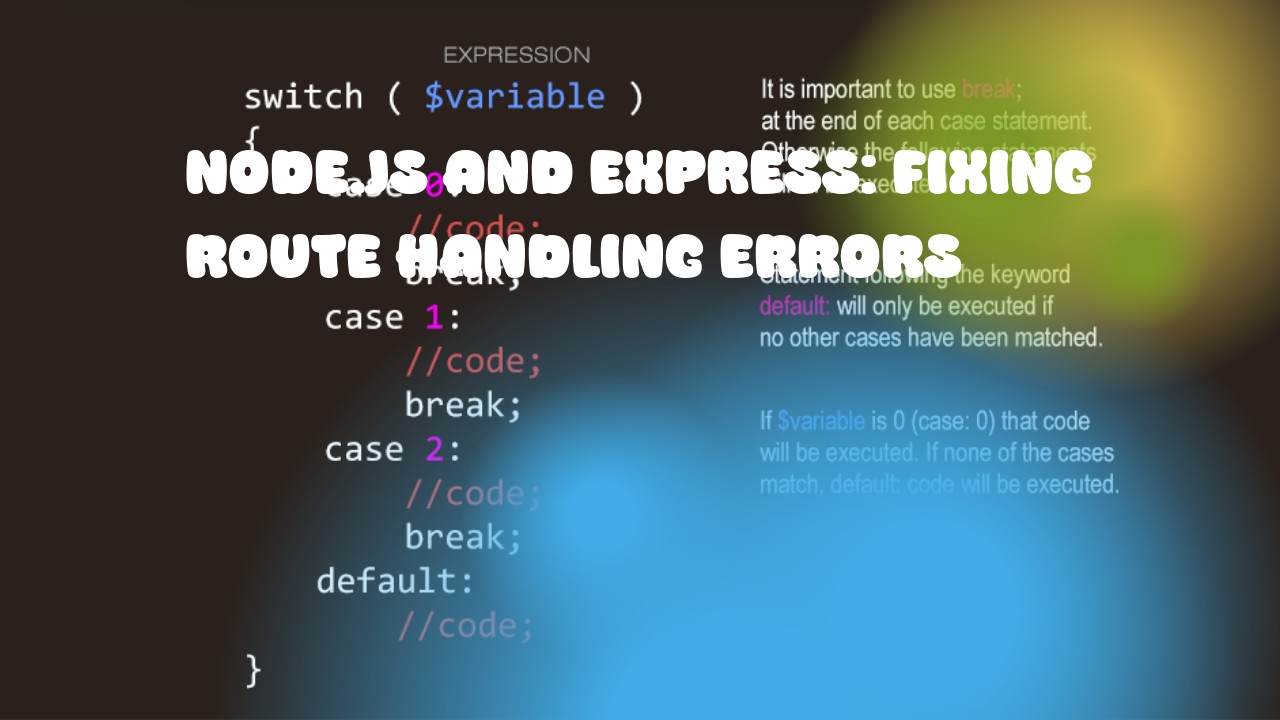In Node.js and Express, route handling errors can be fixed by utilizing middleware functions. These middleware functions have access to the request and response objects as well as a next() function which allows us to pass execution to the next middleware or route handler.
One common issue when dealing with route handling in Express is trying to use res (response) after it has already been used. This can lead to an error saying 'Can't set headers after they are sent'. Here's a fix for this:
app.get('/example', (req, res, next) => {
let result = doSomething(); // assume this returns something
if (!result) return next(new Error('Result not found'));
res.json(result);
});
In the above code, if DoSomething() doesn't find a result, it passes the error to the next middleware via next(new Error('Result not found')). If no errors occur, it returns the result as JSON via res.json(result).
Another common mistake when using Express is returning multiple values in a single route handler. This can lead to unpredictable behavior and potential issues with headers already sent. Here's an example of how to handle this:
app.get('/example', (req, res) => {
let result = DoSomething(); // assume this returns something
if (!result) {
res.status(404).send('Result not found');
} else {
res.json(result);
}
});
In the above code, if DoSomething() doesn't find a result, it sets the response status to 404 and sends a message 'Result not found'. If a result is found, it returns the result as JSON via res.json(result). This way, there are no multiple responses sent to the client.

